Unlike those other fundamentals which might be described as static skills, trigger control is dynamic.
In short, you hold the gun on target while moving the trigger to the rear.
And that fair reader, is easier said than done.
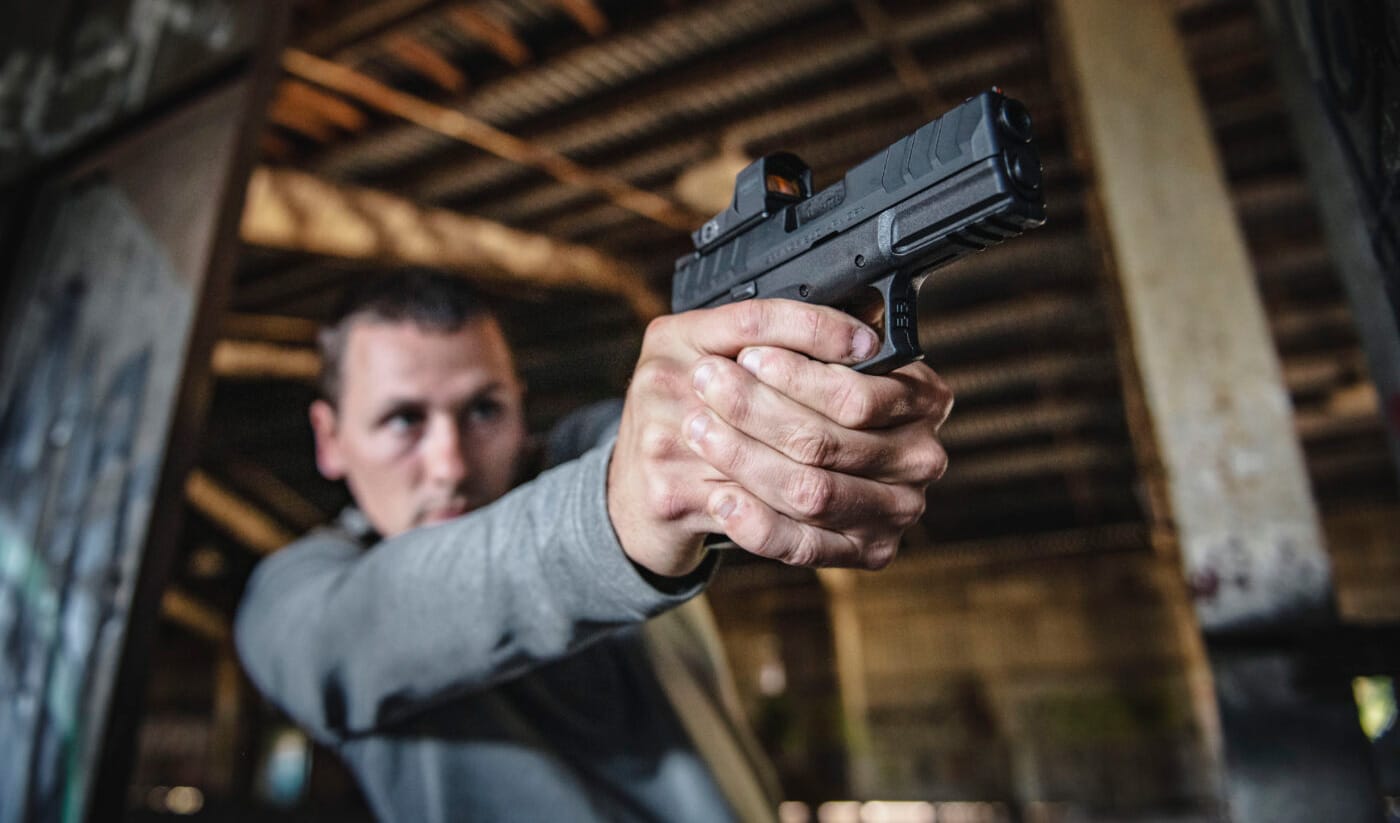
Most of us will be best served by centering the distal pad of the index finger on the trigger.
Grips with too great a circumference prevent users with smaller hands from getting proper finger placement on the trigger.
Grasping the Issue
So exactly how do we get a handle on trigger control?
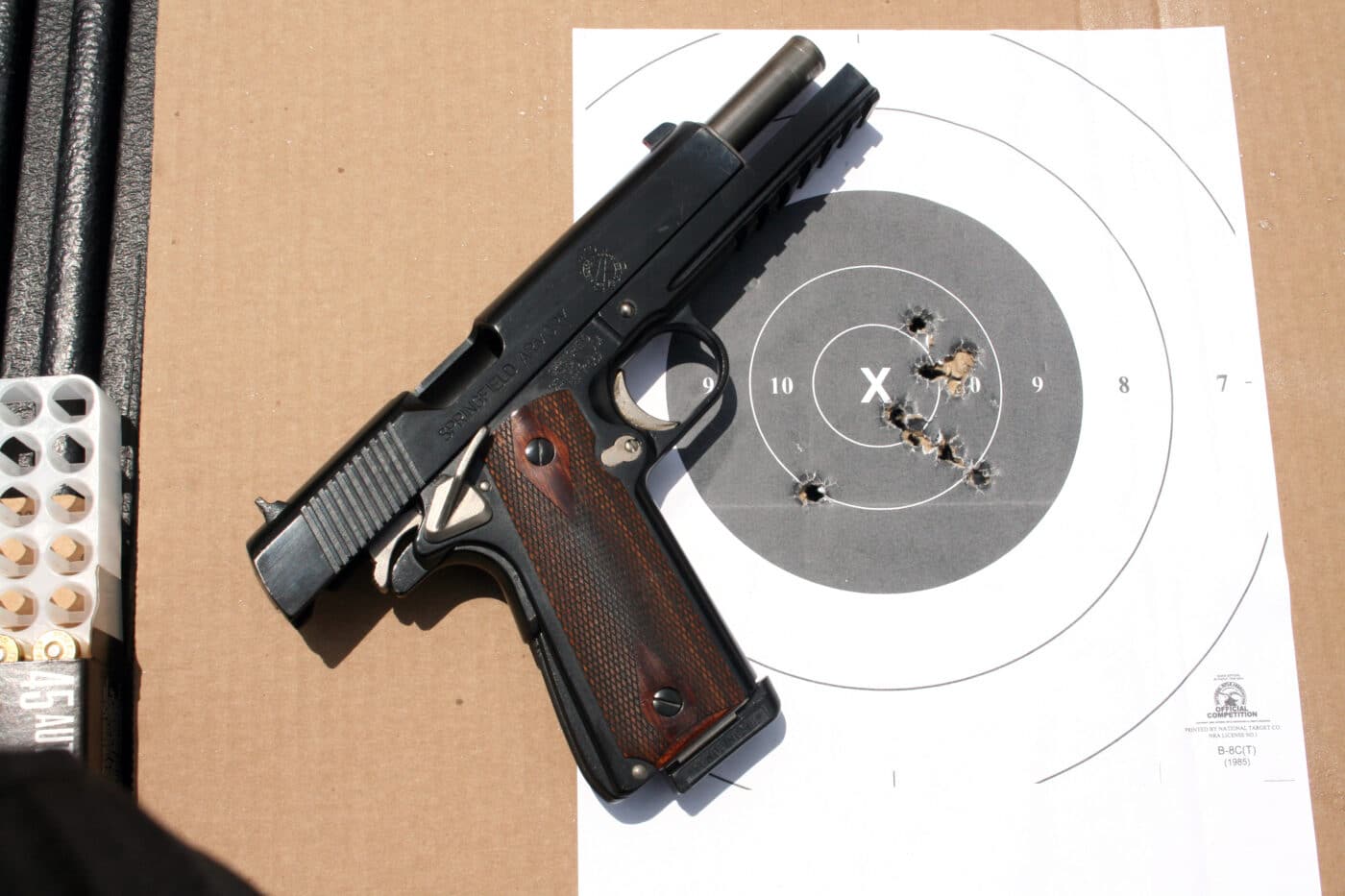
Trigger control consists of three distinct phases.
In the first phase, that initial rearward movement there is little resistance.
After shot break, the trigger will move forward under its own power to a reset point.
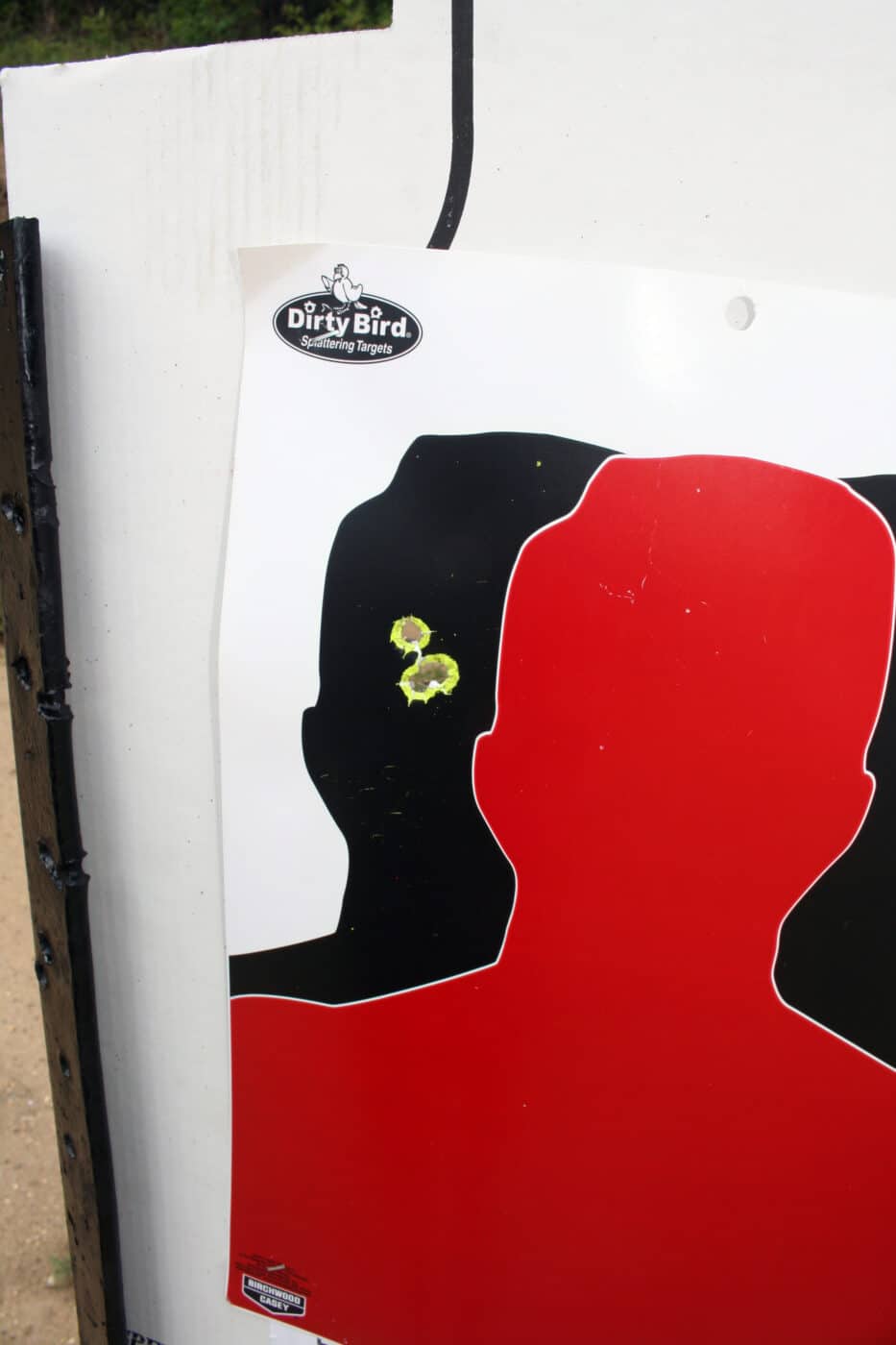
Once it reaches the reset point, exerting additional rearward pressure will cause the pistol to once again fire.
The trigger press and reset is the key for putting fast, accurate shots on the target.
Depress the trigger straight to the rear in a smooth, deliberate motion.
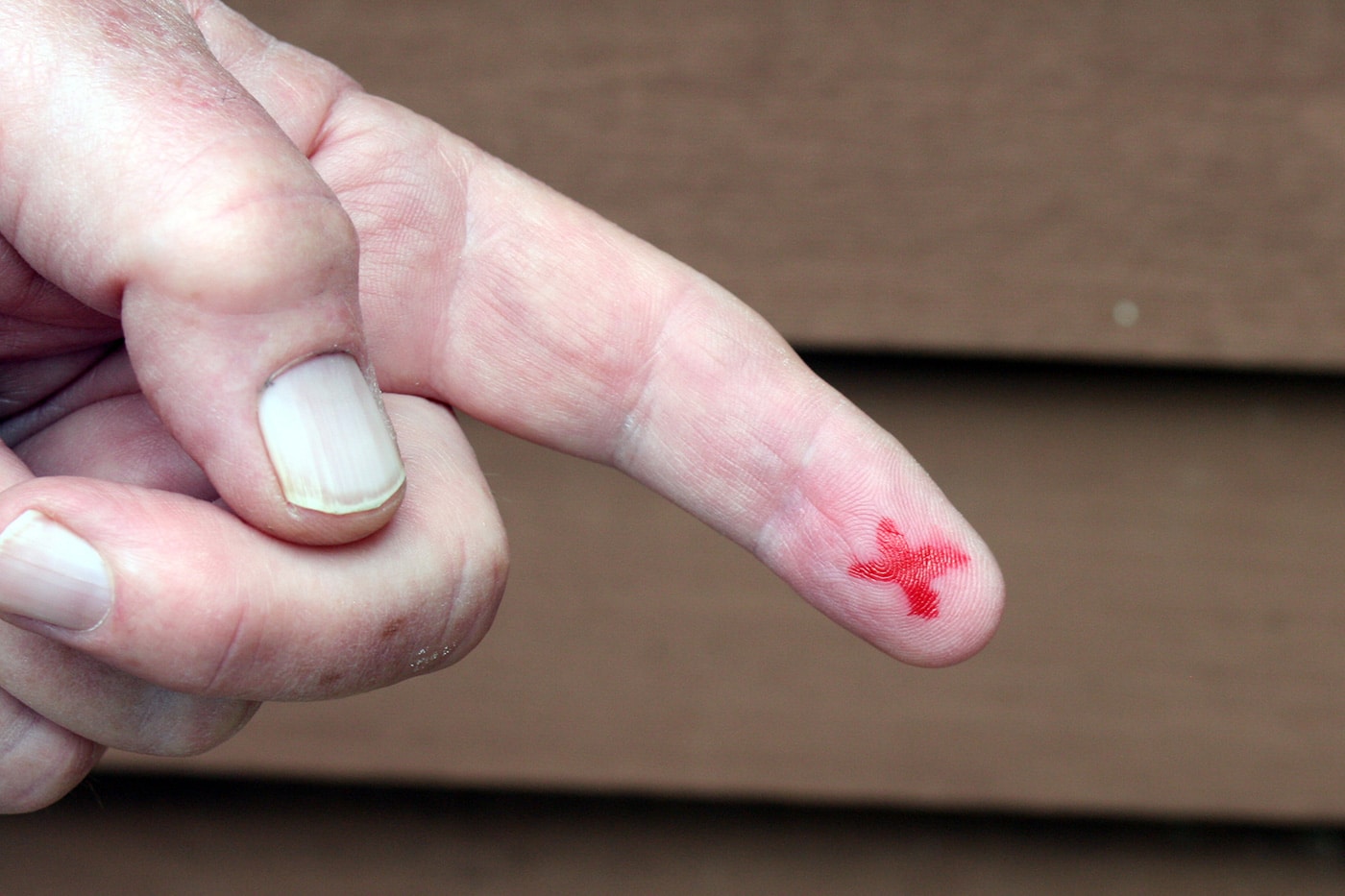
Once the shot breaks, reset the trigger to fire the next shot.
Shorter travel distance of the trigger equates to reduced time, therefore less likelihood of screwing up.
So exactly how might we work this?
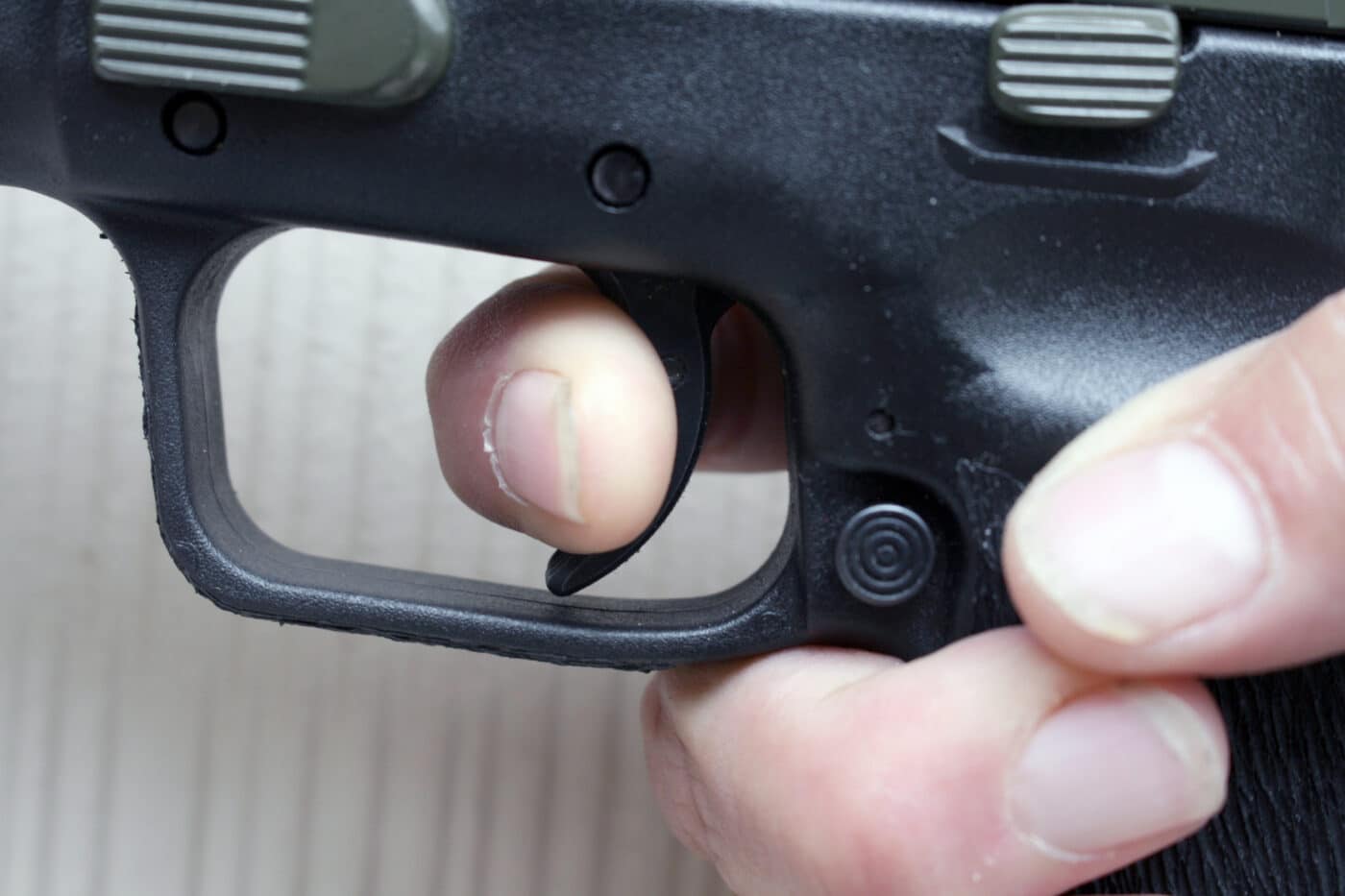
Catching the trigger reset is done while the gun is in recoil.
Most of us mere mortals will experience a slight degree of muzzle rise when we break the shot.
If all goes well, you are now ready to launch that next shot.
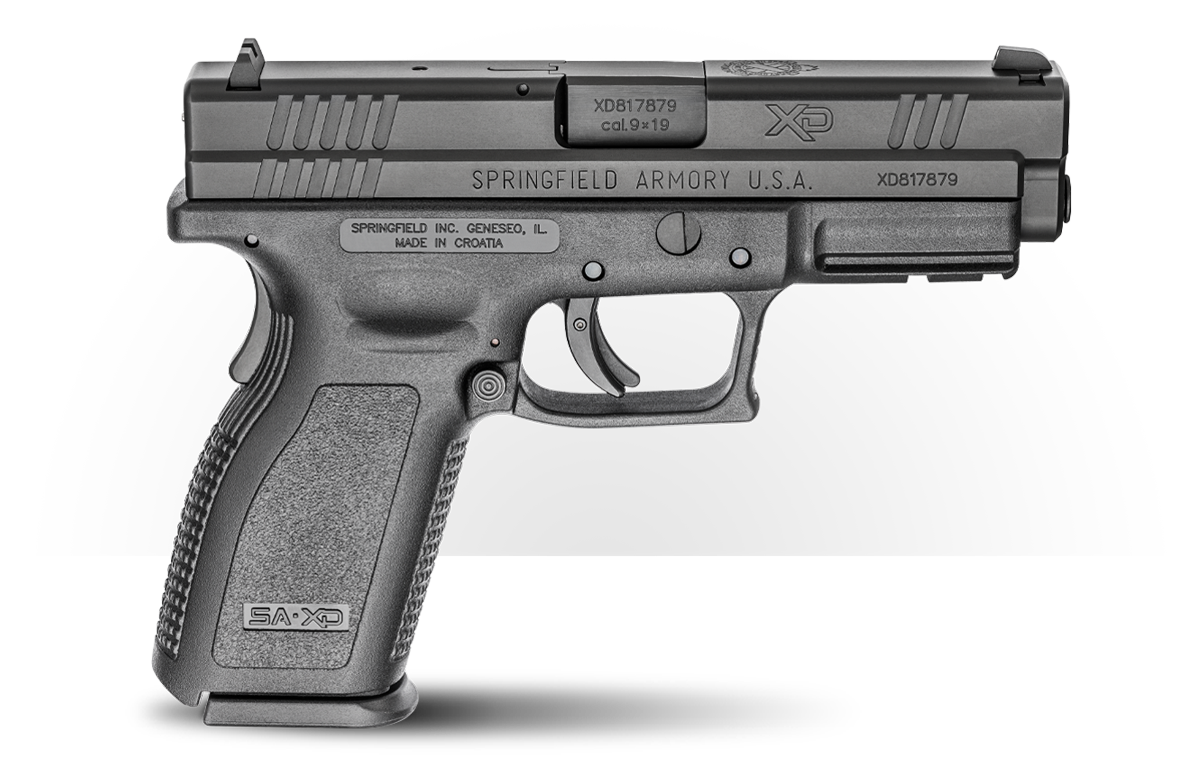
Should the trigger move a shade too far forward, its no big deal.
Press the trigger again and have a go at catch it next time.
Like all psycho-motor skills, start slow and only go faster after you meet with success.
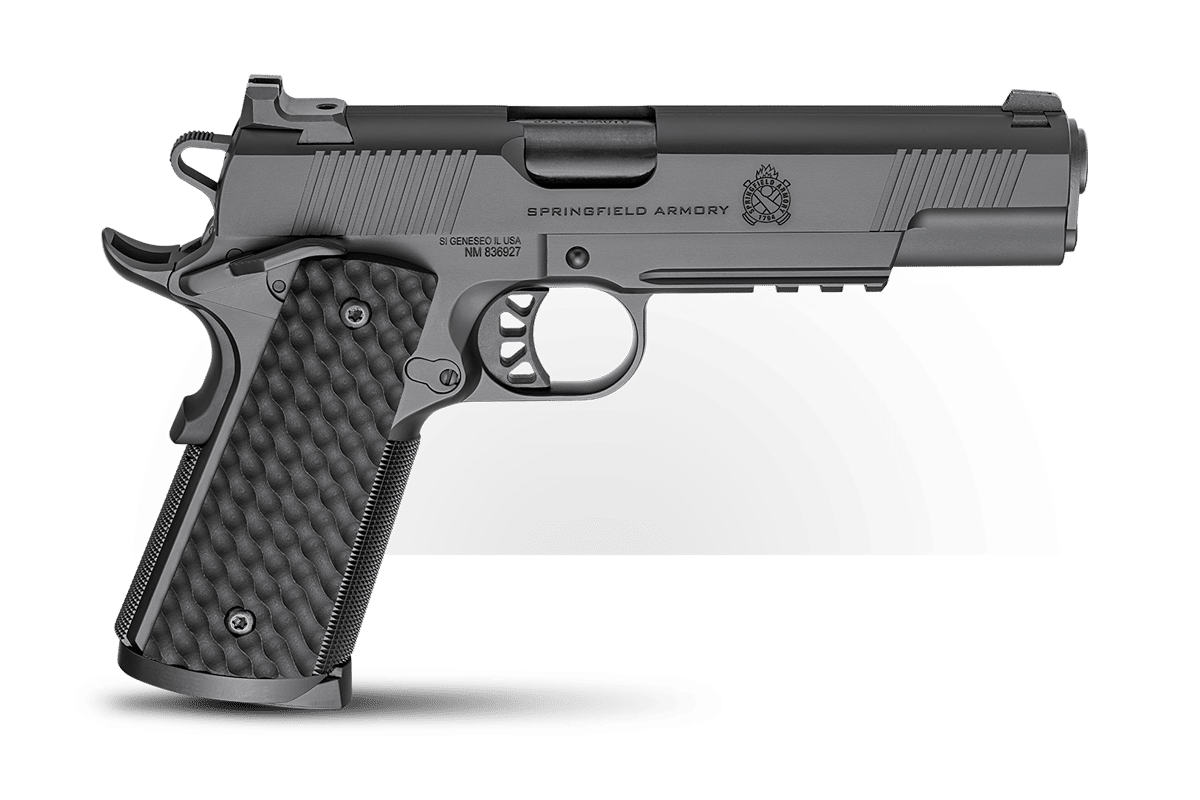
The first is simply feeling the reset.
No target is involved and you simply fire into the range backstop and concentrate on feeling the trigger reset.
Exactly when are you picking up the sights?
When It Matters
At double arms length, trigger control doesnt matter.
So team, get busy.
Slow deliberate practice should be our starting point.
Go to forum thread




